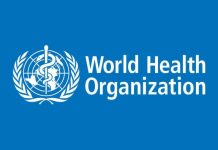Paulina, a management consultant with one of Nigeria’s high-flying consulting firms, was battling for her life in the theatre, after successfully giving birth to her first baby, a boy. The young woman, in her mid-twenties, was entangled in a torrential post-partum haemorrhage that put the doctor and all the midwives on their toes. Being experts in the field who had successfully managed such situations in the past, they knew that the best thing she needed at the point in time was a blood transformation and luckily for her, her blood type was readily available. All that was needed was for her and her husband to give their consent for the process to take place.
To the amazement of everyone, Paulina, who was miraculously hanging on the last ounce of blood in her body, refused transfusion, saying that her religion frowned at it. Her husband, a highly educated man, emboldened her by supporting the no-transfusion stance, claiming it was against their religious doctrine. While the doctor was trying to come to terms with their strange religious orientation, he also knew that he had no overriding power to administer a procedure which the patient, who is legally of adult age, has refused.
Paulina died in a pool of her own blood, at her own volition and that of her “loving” husband. Africa lost a woman of promise who could have impacted many lives positively. But what does it matter, as long as her religious beliefs are left to fester like a cancerous sore? We need to wake up in this part of the world.
Claims of supernatural cure
All over the world, there are claims by clerics on how the power of God has brought about healing of serious and even terminal medical conditions through the instrumentality of prayer and other forms of spiritual rituals. Although orthodox medicine acknowledges the God-factor in its scheme of things, it however does not subscribe to unscientifically proven practices, such as those espoused by faith healing, which in itself is classified as pseudoscience.
In this context, prayer and all totems of religious worship shall be considered as the factors that enhance the healing process. In the Roman Catholic Church, the holy water, the rosary, the crucifix and the Holy Communion (bread and wine) which symbolises the body and blood of Jesus, as well as other materials, are believed to bring about healing when used in accordance with the directions of the cleric or in line with biblical exemplifications.
In the Pentecostal movement, the anointing oil (olive oil) is one of the most popular spiritual medicines used in the battle against principalities and powers. Many have claimed that mere drinking of the substance can lead to total healing for the sick, irrespective of the nature and age of their ailments. The anointing oil can be likened to a broad spectrum antibiotic for stubborn spiritual contagion. How it works in the human system should not be a matter to worry about; the ultimate concern is that it brings about healing when applied with faith.
In Islam, portions of the Quran are ink-written on a scroll and then washed into a bowl and given to the sick to drink. It is believed that the written prayer, when washed and given to the sick, heals him or her of whatever disease condition that might be troubling them. But, most importantly, the presence of unflinching faith is a prerequisite for this formula to work and bring about the desired result.
The socio-economic factor
However, there are people who seriously take exception to such speculative claims. They hinge their arguments on the fact that such claims sell like hot cake in Africa due to the continent’s innumerable socio-economic woes which have turned its citizens into some of the most gullible and vulnerable souls you can find around the earth. You can imagine how easily a man who has not eaten for days would fall for any lie embellished with the presence and aroma of good food or money.
There are those who agree that healing truly happens in Africa but that the reason is purely economic in nature. According to this school of thought, ailments like depression, high blood pressure and some forms of mental illness are all poverty-induced, hence when sufferers of such ailments come in contact with men of God who give them food or money, the ailments vanish automatically. In other words, food and money, in their own rights are also great medicines that ward off sickness, even though the Bible also cautions that man shall not live by bread alone but by every word that comes out from the mouth of the Lord.
This school of thought also believes that a change in leadership styles and the proper management of national resources, and not prayer, are the answers to most problems in Africa. A man who starves with his family for days and sleeps in an uncompleted building cannot have sound sleep; and even if he does, his dreams would be turbulent with strange beings pursuing him. When such a man goes to church, some ancestral demons or foundational witchcraft are blamed for his woes when, in actual fact, his mind and body are only reacting to the traumatic socio-economic realities he is grappling with.
This is not to say that all cases of spiritual attack are embedded in socio-economic problems. Yet, there is more than an iota of truth in the postulation that most men of God in Africa take advantage of the ignorance of their followers to deceive them. Most of these men of God go about with tight security but encourage their followers to buy stickers and aprons which they are told would ward off any form of spiritual and physical attack or illness. With their level of affluence, these man of God can travel to any part of the world for medical tourism yet they keep encouraging their followers to pray even, when it is obvious that prayer alone cannot solve their health challenges.
A man suffering from diabetes needs prayers but most importantly, he needs to take his medication and follow the advice of his doctor. It is nonsensical for anyone to deceive him into believing that prayer alone will cure his diabetes. Miracles happen only when God wants to glorify Himself, especially in situations where He wants to prove a point; and such occurrences are not very common.
Applying caution and wisdom
We must not allow ourselves to be deceived by the avalanche of televised miracles we watch every passing day. Most of them are film tricks. Any ministry or man of God who advertises the ability to perform miracles or to heal the sick is a businessman and not called by God. God’s gifts need no advertisement.
It is noteworthy that one of Africa’s most celebrated faith-healers recently said: “There are many troubles people are carrying to me. You see them – after the prayer, they will carry their drugs and say, ‘Man of God, this is my drug’. Some will meet me and say, ‘Will I still use my medicine?’… If you cannot trust in God with your medicine, you cannot trust in God without your medicine because God Himself is the God of nature. Those medicines are fashioned from plants. If a farmer can trust nature without a definite promise, we Christians should trust the God of nature. God is God of nature. For an operation to be successful, God makes it successful. For one to have a good treatment, God makes it so. He opens the way for a successful operation. We treat, God heals. Doctors treat, God heals. He opens the doctor’s eyes to give you the appropriate treatment”.
The popular prophet had actually made these remarks while responding to a congregant’s question on whether it was proper for Christians to stop taking medication when seeking God’s face for healing after prayer.
Unless we begin to see both orthodox and traditional medicines as extensions of God’s curative gifts to humanity, we will continue to wallow in ignorance, especially the type induced by such religious doctrines that sent a woman to her untimely grave when simple blood transfusion could have saved her life. For Africa to compete with other parts of the world, we must do away with certain obnoxious religious doctrines that are inimical to human existence and development.










